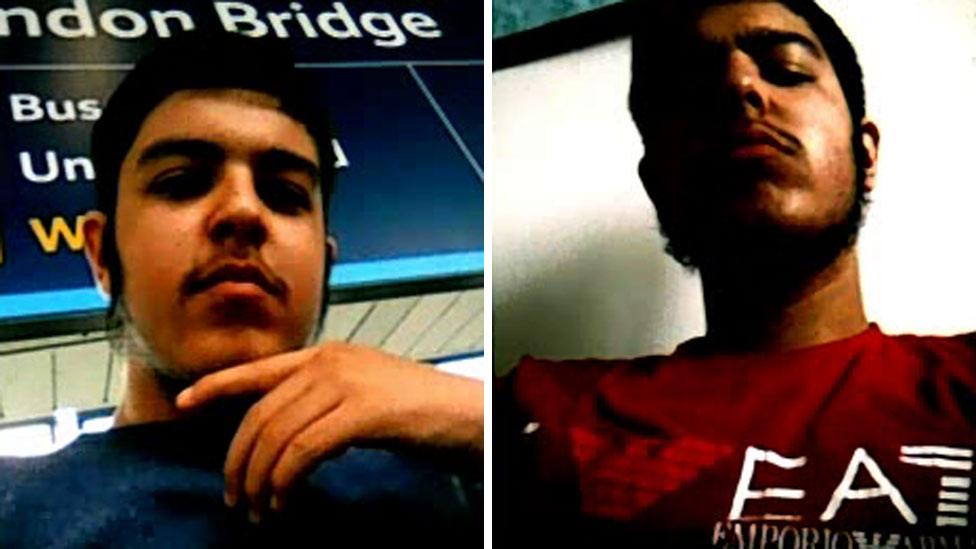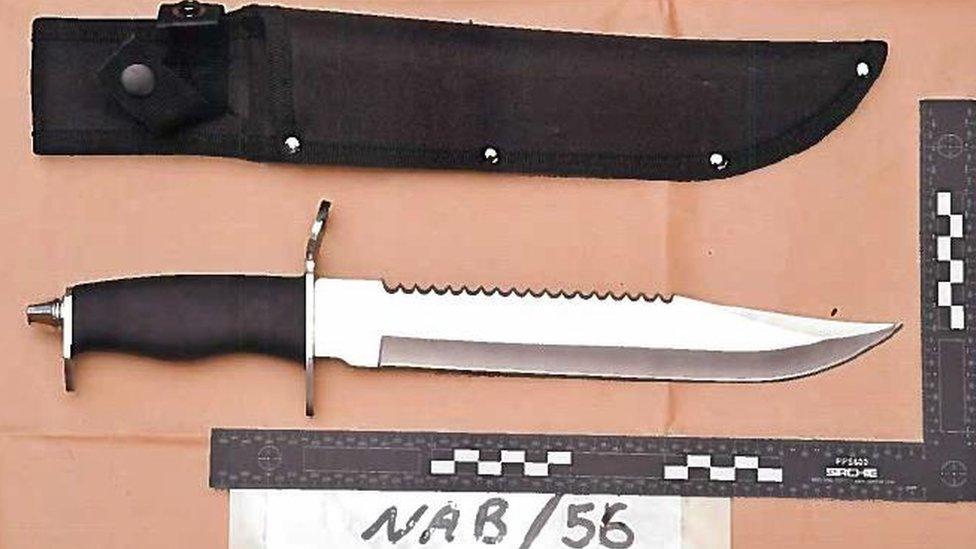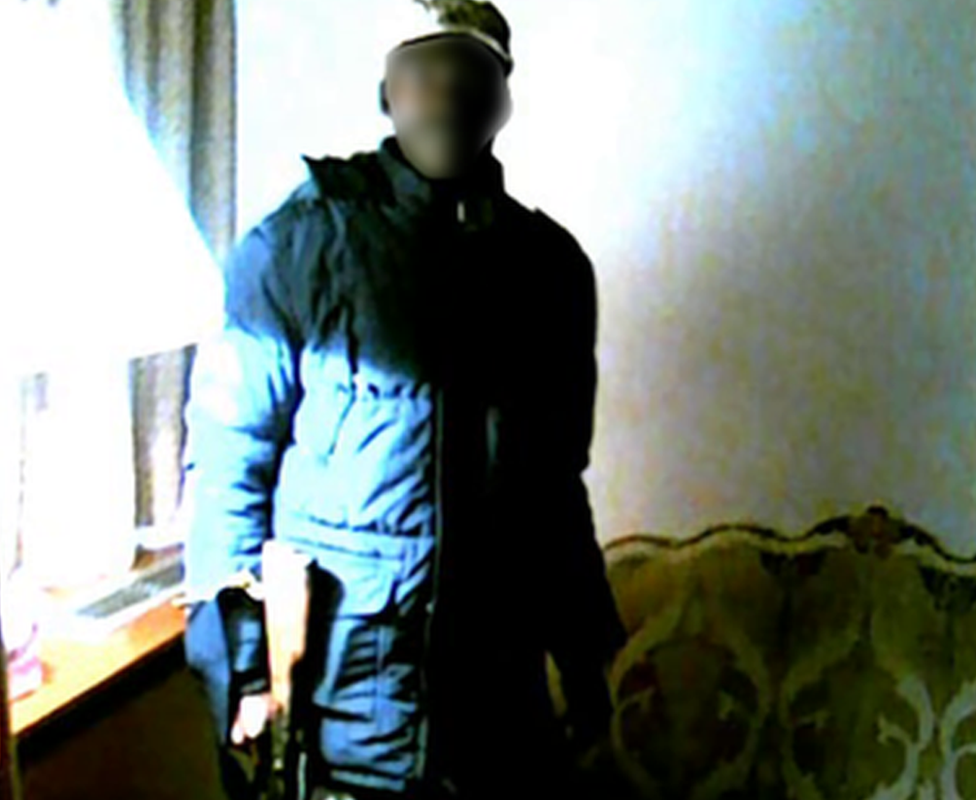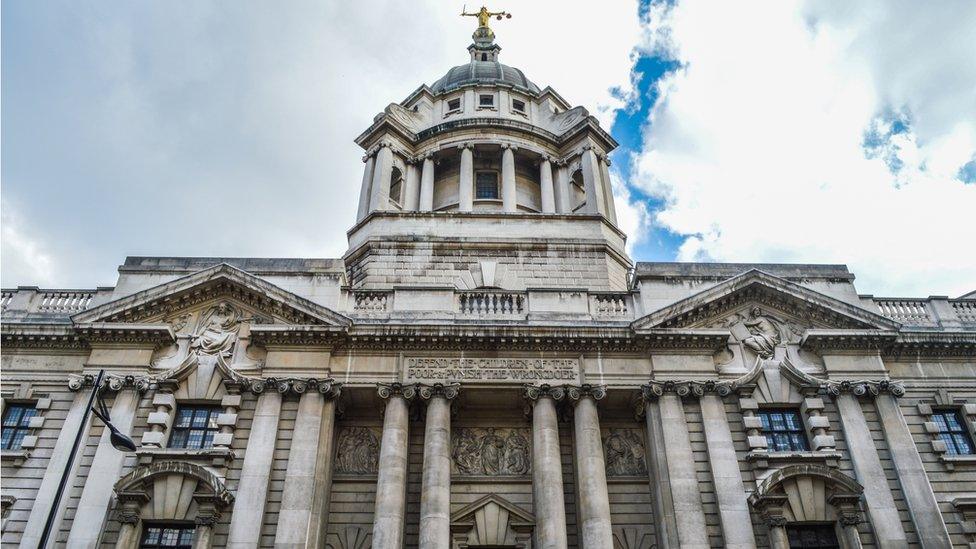Haider Ahmed guilty of hunting knife suicide terror plot
- Published

Haider Ahmed contacted an IS fighter in Syria to seek permission to launch an attack
A teenage supporter of Islamic State (IS) has been convicted of planning a terror attack with a hunting knife.
Haider Ahmed, 19, from Redhill in Surrey, told contacts he wanted to conduct a suicide mission.
But Kingston Crown Court heard Ahmed's mother took the knife away from him after finding it in his bag.
Jurors cleared the man who sold him the knife - Imdadul Karim, 24, from Streatham - of arranging property for the purposes of terrorism.
Ahmed was aged 16 and 17 at the time he planned the attack, which was discovered after police arrested him in October 2016 on suspicion of money laundering.
He refused to give officers the PIN for his phone and it took until the following April for detectives to gain access to his messages.
In encrypted conversations with a female contact in September 2016, Ahmed wrote: "I wanna do Inghamasi [suicide attack] here inshAllah."
Another read: "I came home on the train today and I even imagined doing it on the train."
'Ruin faces'
The court heard the college student had also been in contact with IS fighters in the Middle East.
He asked a senior British member of IS in Syria - Omar Hussain, also known as Abu Saeed al Britani - if he could carry out a suicide attack in the UK.
Hussain, who is believed to have since been killed, replied the following day: "Yes u can."
By this point Ahmed had already asked Imadadul Karim to provide him with a knife.
When the teenager first made the request, Karim - who regularly purchased knives online - had replied: "Dnt gt caught with it. They'll say isis."
During communications over the following weeks, Ahmed said: "I wanna ruin some people's faces or dip [stab] them in the leg lol."
Ahmed eventually bought a knife for £25 using Paypal and wrote that he could "now do damage."

After Ahmed received the knife, he wrote he "can now do damage"
Other messages showed Ahmed saying he might use the knife to carry out a robbery which would help fund travel to IS territories.
Det Ch Supt Kath Barnes, head of Counter Terrorism Policing South East, told the BBC it was "incredibly worrying because it's clear that he had started to have very extreme views and interpretations of Islam at an incredibly young age".
She said Ahmed "first came to the notice of the police because of a report from a member of the public who was concerned about his behaviour".
Adding that "he had a very, very extreme mindset", she said it was a "failure of society that we haven't collectively been able to put this young man on a more positive path".

Ahmed put a Nigerian man, Carl Drogo, in touch with a fighter in Libya, the court heard
Ahmed had denied planning to carry out a terror attack and said his claims were just an attempt to impress girls.
Ahead of trial he pleaded guilty to four counts of disseminating violent IS propaganda.
When he sent out one image from a video of a man being shot in the head, a female contact replied: "Uuuhhhfff Bullseye", to which Ahmed responded: "Lool. Watching on TV HD lol."
Ahmed also admitted collecting a record of terrorist information: an IS video explaining how to build a bomb and conduct a lone wolf attack.
He further admitted a separate charge of assisting another person to prepare acts of terrorism.
That offence involved helping a male he had met online travel from Nigeria to Libya in 2015 to fight for IS.
Ahmed had been the administrator of an encrypted chat group of IS supporters from around the world.
The court heard he told others how he had put the Nigerian - who used the name Carl Drogo - in touch with a fighter in Libya and that Drogo had later sent him photos from the conflict zone.
Last year a jury failed to reach verdicts on the charges denied by Ahmed and Karim.
After a retrial, Ahmed was convicted by a majority verdict of preparing an act of terrorism.
He will be sentenced on 15 April.
- Published11 August 2017

- Published14 July 2017
